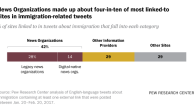How important are PSCs? There are many issues related to the war in Iraq that compete for coverage on a daily basis. U.S. military personnel and their families far outnumber private military contractors. Still, funding for PSCs comes, directly or indirectly, from taxpayer dollars. And even within the military there is heated debate about the use of PSCs.
Supporters of the reliance on PSC forces say they are better-trained for certain tasks—such as convoy protection
or personal security—than U.S. military personnel, whose primary focus is often engaging the enemy in battle.
[1]
On the other side of the argument, critics of PSCs in Iraq say their independent operating guidelines can make them harder to control and monitor. Avant points out, for instance, that despite the high number of contractors in Iraq, only one has been prosecuted for any wrongdoing.
Beyond the debate over the pros and cons of PSCs, there is the broader issue of whether the public is adequately informed about their role in Iraq. Many PSCs are sub-contractors or even further removed from the government contract that is technically paying them for their services. For example, they are hired as security by construction firms that have been hired by bigger construction firms to build roads and buildings. The government doesn’t keep track on their personnel or budgets.
As Rep. Jan Schakowsky (D-Ill), told USA Today, “There is no visibility on these contractors. Meaning no clue how much money we’re spending.”
In an interview with PEJ, Lawrence Peter, head of the Private Security Company Association in Iraq, expressed frustration with the reporting on PSCs. He said coverage is extremely limited, and the stories that emerge, he argued, often center on how they are “mercenaries and hired guns” with little attention to how much they are needed.
Whatever the nature of the coverage, the lack of it means it has been largely left it to a small group of lobbyists, advocates and dissenters to scrutinize what these firms do, how many personnel they have in theater or how much public money is subsidizing them.




